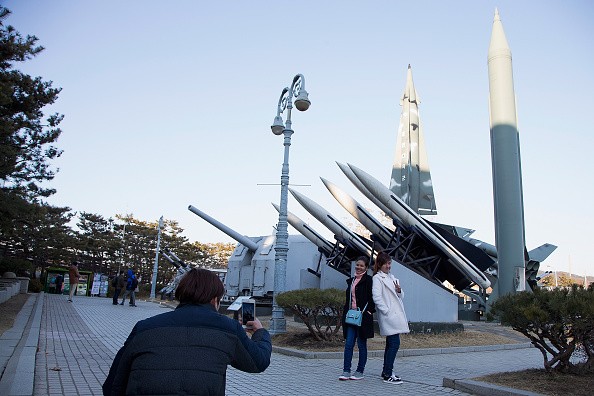The economic relationship between China and South Korea is not likely to be affected after Seoul's decision to deploy a missile defense system in the country's southeast, as the two nations are economically reliant to one another, according to experts.
On July 8, the U.S. and South Korea jointly announced the deployment of the Terminal High Altitude Area Defense (THAAD) anti-missile system in response to North Korea's missile and nuclear threats, prompting swift opposition by China and neighboring countries.
After the announcement was made, various South Korean companies, including Lotte Group and LG Corporation, told the Global Times newspaper in Beijing on Monday that their operations in China is running as usual.
On Friday, Choi Yong-Min, head of the Korean International Trade Association's Beijing Office, told the South Korean newspaper Joongang Daily that hasn't been a "notable" change in China's situation and no trade sanctions have been placed on South Korea to date.
Choi's comments come amid a boom economic relationship between China and South Korea in recent years.
In June 2015, the two countries officially signed a free trade agreement (FTA) which later took effect in December that same year. The agreement is estimated to lift the GDPs of South Korea and China by 1 percent and 0.3 percent, respectively, over the next decade, according to state-owned media.
In 2015, South Korea's exports to China amounted to $137 billion, accounting for 23 percent of its total exports, making China its largest market as of 2015, according to data published on the MOFCOM website.
Investment also rose sharply between the two countries. In a report published by The Korea Herald this month, South Korean companies invested a total of $2.2 billion in China between January and May 2016, up 12.2 percent year-on-year. The investment is expected to reach $5.3 billion in 2016 based on the rate recorded in the first five months, the report added.
Future prospects
Given the increasingly close economic ties, experts rebuffed concerns that the deployment of the THAAD anti-missile system will have a considerable long-term impact on trade and capital inflow between the two countries.
Chen Fengying, a research fellow at the China Institutes of Contemporary International Relations, told the Global Times that the Sino-South Korean FTA is a treaty of the highest level in the Asian region and that the two economies are inextricably interwoven with each other.
"Many enterprises in China and South Korean are placed in the same industry chains, with roles that focus on different procedures, which mean the two countries' economies are dependent on each other", said Bai Ming, a research fellow at the Chinese Academy of International Trade and Economic Cooperation. "It is hard to imagine what will happen if their economic relationship was jeopardized or even halted."
Bai cited the electronic product industry as an example, wherein China assembles and manufactures intermediary goods imported from South Korea and then exports them to other parts of the world.
"Some South Korean industries, including the cosmetics and tourism sectors, rely on a large Chinese market," Chen added.
Analysts also foresee a more positive outlook for the two countries' economic cooperation because of the trade agreement.
Due to the FTA, China's foreign trade volume with South Korea is expected to reach $400 billion within the next 5 years, Shi Yuanhua, a professor of Institute of International Studies at Fudan University, told the Global Times in a report posted on Monday.
South Korean tech giant Samsung also expressed confidence that the Chinese market will expand investment into this market to develop cutting-edge technologies and diversify its businesses, the report added.



























